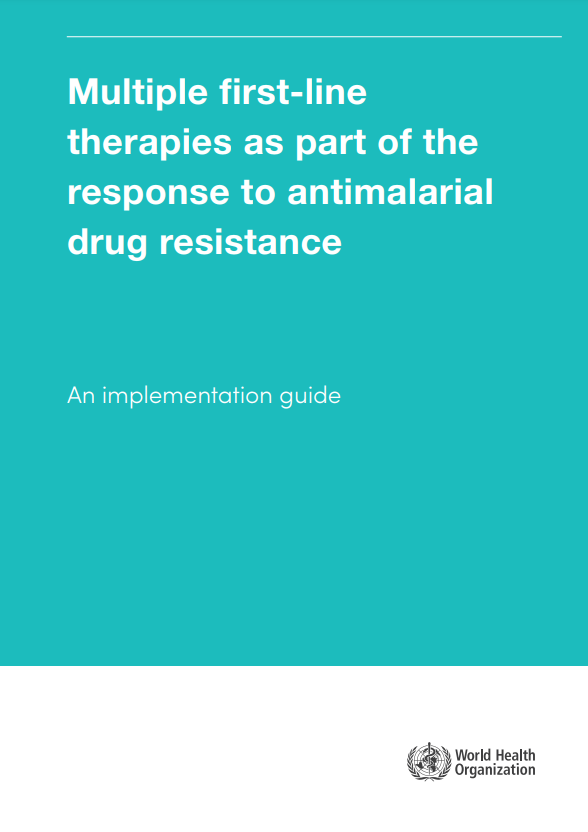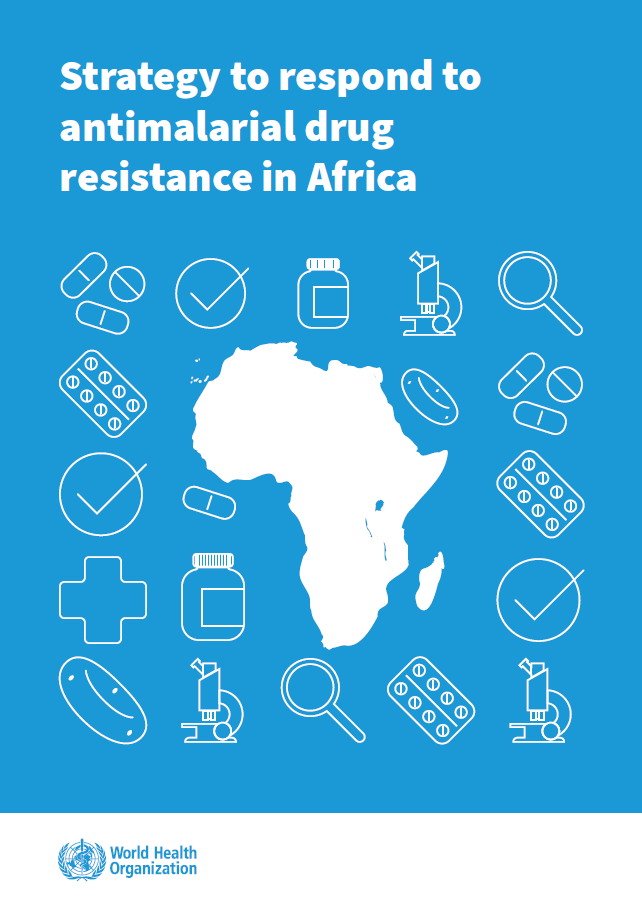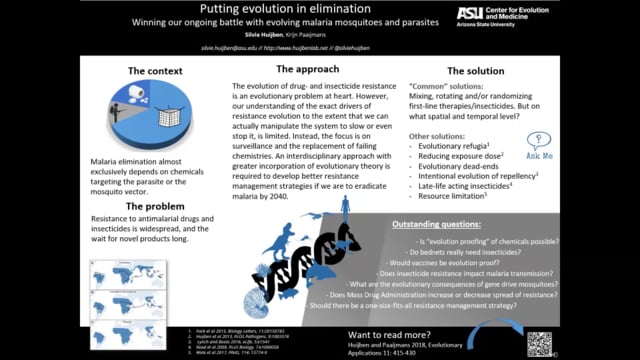Last Updated: 03/02/2025
Next-generation peptide-based medicines for malaria
Objectives
Considering the seriousness of malaria and the threat of losing the battle against emerging drug-resistant parasites, this project aims to develop a new class of molecule that kills malaria parasites via a different mechanism compared to all existing antimalarial drugs by harnessing the selective antimalarial activity of a peptide, or mini-protein, that has been developed from a small portion of a human blood protein called platelet factor 4 (PF4).
Malaria is a disease that causes episodes of fever and chills and can rapidly increase in severity, resulting in death. It is estimated that malaria has killed half of the people who have ever lived. Malaria is transmitted by Anopheles mosquitos, which transfer the disease-causing Plasmodium parasites from person to person. Concerted efforts to lessen the burden of malaria have included use of insecticidal sprays and impregnated bednets reduce mosquito numbers and night feeding, and development of antimalarial drugs to kill the parasites in their human host. These measures have been very effective. However, over 200 million people are still infected with malaria parasites every year with over 400 thousand of these infections resulting in death. Malaria parasites have developed resistance to every drug that has been developed. Current efforts to control the disease rely heavily on combination treatments that include the drug artemisinin, but parasites in South East Asia are developing resistance to this drug. This is alarming because South East Asia has been the epicenter for emergence and spread of parasites that developed resistance to other previously valuable drugs such as chloroquine. Malaria is a significant health concern to civilians in regions where malaria is present, but also a major consideration for military operations. The health status of military personnel who are deployed into regions with malaria impacts on the success of missions, and previous conflicts including World War II, the Korean War, and Vietnam collectively resulted in over 1.1 million personnel being infected with malaria. The threat of malaria impacts mission readiness for future deployment, making the prevention and treatment of this disease a serious concern for the U.S. Department of Defense and military partners. Modern methods to address malaria rely heavily on prevention, whereby preventative doses of antimalarial drugs must be taken regularly while personnel are stationed in the malaria-prevalent region, and for weeks afterward. Many antimalarial drugs have been associated with negative side effects, ranging from gastrointestinal upset and photosensitivity to significant neurological effects. Also, some antimalarial drugs, such as tafenoquine, are contraindicated for use in individuals with a particular enzyme deficiency. Curative doses of tafenoquine cause anemia in these people. The undesirable side effects associated with long-term use of preventative antimalarial drugs lessens the likelihood of deployed military personnel adhering to their prescribed drug regimens and increases the risk of developing serious disease.
The structure of this portion has been stabilized through a process called cyclization to produce a peptide with no exposed ends or undefined structures that could be degraded. This new molecule called cPF4PD (cyclic PF4 peptide dimer) can recognize and enter malaria-infected red blood cells (iRBCs) but does not enter or damage healthy cells. Once inside iRBCs, cPF4PD enters the malaria parasite and disrupts the parasite’s internal structure, resulting in weakened parasites. The safety profile and selective nature of cPF4PD makes it an ideal candidate for developing safer antimalarial drugs. The ability of cPF4PD to kill malaria parasites is promising, but this peptide needs to undergo some improvements to be useful as an antimalarial drug. Therefore, this project aims to develop improved versions of cPF4PD that are even more stable, so that they can remain intact once they’re in human blood. The aim is also to develop a more potent form, so that lower doses can be used to effectively kill parasites. To achieve these goals, diverse libraries of peptide variants will be produced and those with the most desirable characteristics will be selected to undergo testing in mice that are infected with malaria parasites. This animal model is an important way to evaluate drug candidates before deciding whether they should progress to the next stage of testing, and eventually into human trials. Combination therapies remain a very promising way to attack malaria parasites. Therefore, the project will examine whether combining cPF4PD peptides with existing antimalarial drugs such as tafenoquine improves the ability to kill malaria parasites. Attacking parasites via two separate mechanisms has the added advantage of reducing their ability to develop resistance to either or both components of the treatment. A second innovative component of this project is to produce cPF4PD-derived peptides with promising antimalarial activity in plants. Because peptides are made from natural amino acids, they can be produced in biological expression systems that tend to be more cost-effective and environmentally friendly than chemical systems. Progress toward using plants as living factories for making therapeutic molecules has advanced in recent years with successful production of vaccines for influenza and COVID-19. It also aims to modify a rapid-growing plant that is native to Australia, called Nicotiana benthamiana. This remarkable plant can readily accept foreign genes that are introduced using tailor-made plant viruses. The genetic material of Nicotiana plants can also be adapted to make them better suited for accumulating the products of the foreign genes. Nicotiana plants will be converted into living factories to produce cPF4PD peptides. The peptides that are produced in the Nicotiana system will be purified before testing their antimalarial activity. However, other plant expression systems including tomato and lettuce have the added advantage that dried plant material containing the therapeutic molecule can be used as edible medicines. This is an exciting new idea, and in this project, proof-of-concept studies will be undertaken to determine whether cPF4PD peptides can be produced as edible medicines in tomato and lettuce. Medicines produced in this way have lower production costs and are more suitable for storage without the need for special refrigeration or drug formulations. In conclusion, this project addresses the PRMRP topic area of malaria, and the call to provide innovative solutions for prevention and treatment of malaria in military personnel and citizens in regions where malaria is prevalent. Malaria will be challenged through our development of antimalarial peptides that have a new way of killing parasites. These novel molecules will be produced in plant-based systems to make next-generation antimalarial drugs that are affordable, scalable, and transportable to address the needs of the defense Forces.
Oct 2020 — Sep 2021
$2.38M


